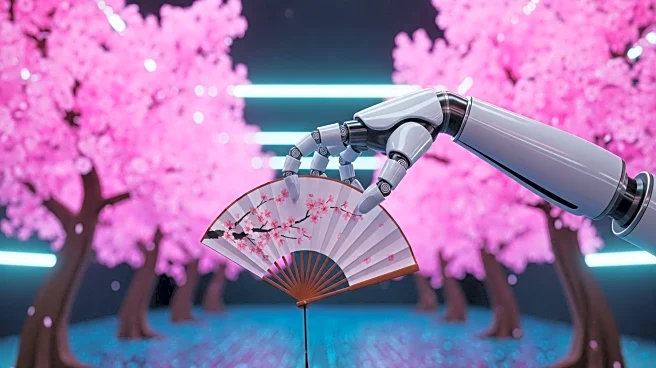What is the story about?
What's Happening?
A recent survey by the Computer Entertainment Supplier’s Association (CESA) reveals that 51% of Japanese game companies are incorporating artificial intelligence (AI) into their development processes. This includes major developers such as Capcom, Level-5, and Square Enix. The survey highlights AI's use in generating visual game assets, story and text generation, and programming assistance. Additionally, 32% of these companies are utilizing AI to develop in-house game engines. While some companies, like Level-5, are extensively using AI for tasks ranging from visual upscaling to code generation, others like Nintendo are cautious, citing copyright concerns. The debate over AI's role in gaming continues, with some industry leaders advocating for responsible adoption to preserve the human element in game development.
Why It's Important?
The integration of AI in game development signifies a significant shift in the industry, potentially transforming how games are created and experienced. For companies, AI offers the promise of increased efficiency and reduced costs by automating repetitive tasks. However, this technological advancement also raises ethical and creative concerns. The potential for AI to replace human artists and developers is controversial, with fears of job displacement and loss of creative authenticity. Companies that embrace AI may gain a competitive edge, but they must navigate the challenges of maintaining artistic integrity and addressing legal issues such as copyright. The industry's response to AI will likely influence global gaming trends and set precedents for other creative sectors.
What's Next?
As AI continues to permeate the gaming industry, companies will need to balance innovation with ethical considerations. Stakeholders, including developers, artists, and legal experts, are expected to engage in ongoing discussions about the responsible use of AI. Companies like Nintendo may lead efforts to establish guidelines that protect intellectual property and ensure fair use. Meanwhile, industry leaders may explore collaborations to develop AI tools that complement rather than replace human creativity. The outcome of these efforts could shape the future of game development, influencing how AI is integrated into other creative industries.
Beyond the Headlines
The broader implications of AI in gaming extend beyond immediate industry concerns. As AI technology evolves, it may redefine the relationship between creators and consumers, offering new forms of interactive storytelling and personalized gaming experiences. However, the reliance on AI also poses risks, such as the potential for algorithmic bias and the erosion of traditional artistic skills. The industry's approach to these challenges could influence public perception of AI and its role in society, highlighting the need for transparency and accountability in technological innovation.















